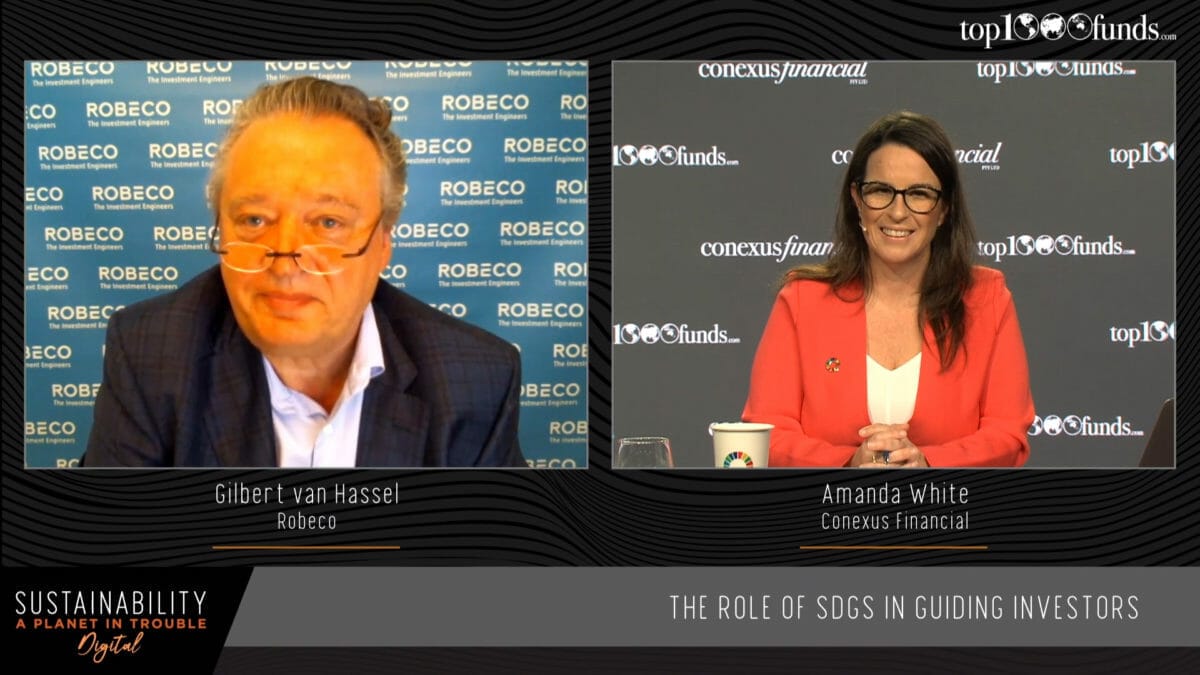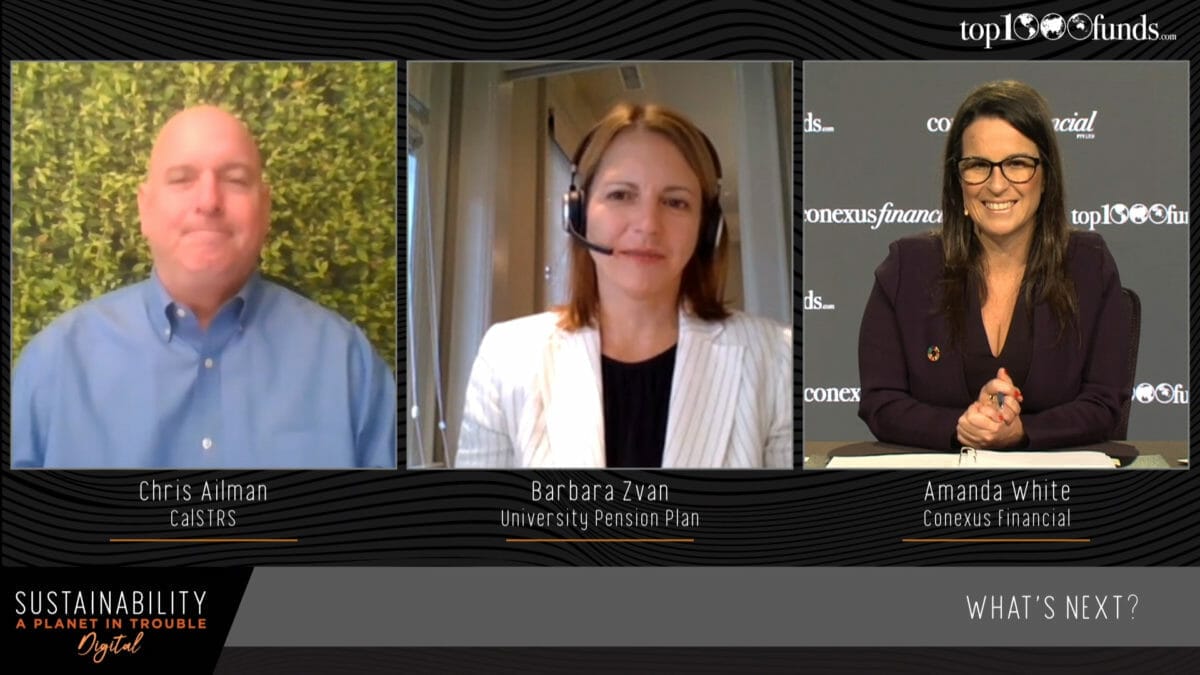There is moment driven by the COVID-19 crisis to invest in line with the Sustainable Development Goals, according to chief executive of Robeco, Gilbert van Hassel. But investing in companies of the future, and avoiding risks of the past, requires real expertise and changing mindsets about investment poses one of the biggest challenge for investors.
The Sustainable Development Goals offer a North Star guiding to a better world, said Gilbert van Hassel, chief executive, Robeco.
Speaking at Sustainability Digital, van Hassel urged over 600 delegates from 43 different countries with a collective $16.3 trillion assets under management to follow the SDGs to help solve the grittiest world problems. The 17 SDGs offer a “perfect blueprint” for bigger and bolder action to help solve the interdependent challenges that have seen the health crisis of Covid-19 trigger an economic crisis.
Launched five years ago with the aim of putting capital to work to earn returns alongside helping solve global scourges like the climate crisis, poverty and inequality by 2030, the SDGs reflect the global nature of today’s challenges. They also lay to rest the old belief that sustainability is only an issue for poor countries.
“We in the developed world have climate issues, inequality and governance issues,” he said.
Van Hassel told delegates the SDGs are achievable despite the pace of change, listing Australia’s bushfires and unprecedented temperatures in California and the threat of extinction for millions of species as some of the challenges. He also noted positive change over the last five years like the growth in the number of women elected to Parliament; the fact one fifth of global energy production now derives from renewable sources and more of the ocean is protected. Corporations are weaving ESG and the SDGs into the goals and Europe is leading on introducing new sustainability regulation, he said.
“Doing nothing is going to get us into serious trouble but the momentum is there, and Covid-19 has given us an opportunity,” he said. “Now is time for action and I am optimistic.”
As today’s problems are interconnected so the SDGs are similarly interconnected. It makes solving them more complex. For example, solving hunger (SDG 2) will create better health (SDG 3) but at the same time could impinge on water resources (SDG 6) and influence climate change (SDG 13).
“The SDGs are complex and require real knowledge,” he said.
Solving them requires public and private sectors coming together and van Hassel urged governments to introduce policies that make private sector investment easier. “We need more regulation not less,” he said.
Investing sustainably fits with institutional investors fiduciary duty to maximise returns and minimise risk. “Sustainability has these two components,” he said. He urged delegates to “make sure” that sustainable companies “are winning” noting that clear trends have started to emerged. For example, oil companies are being forced to write down billions of assets.
He also urged investors to increase their academic knowledge of sustainability, saying the Robeco is a “research-driven” organisation: allocating capital responsibly to sustainable opportunities and avoiding transition risk requires a new mind set and expertise, he said. Investing in companies of the future, and avoiding risks of the past, requires real expertise. Indeed, changing mindsets poses one of the biggest challenge for investors.
“We need to take sustainability seriously and incorporate it into our thinking,” he said.
As he urged investors to put their capital to work towards a sustainable recovery he noted that the interest of companies and investors are aligned.
“Let’s make sure we use our capital to invest in a sustainable recovery and make sure we as owners of companies, engage with them,” he said
Noting the importance of cooperation van Hassel urged investor collaboration with similarly minded people working together. For example, investor signatories of Climate Action 100+ has resulted in Italian group Enel appointing a board director with climate experience.
“Engagement is very important, and you can’t do it by yourself,” he said.
He urged investors to “walk the talk” and introduce sustainability within their own practices so that ESG becomes part of their DNA.
He noted that achieving the SDGs is a huge challenge but warned delegates they didn’t have the luxury to pick and choose which ones are achievable. Because they are interconnected we should therefore “strive to solve them all” making progress with “as few negative side effects as possible.”
Finally, he urged for a conversation whereby investors set out their sustainable ambitions and what kind of future they want to invest in.
“It is not only about wealth but also about wellbeing,” he said. “Each individual investor needs to set own goals and contribute to better world.”
For the full recording of this session, all the conference program and white papers and stories visit the Sustainability content hub here.




